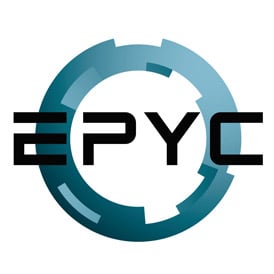AMD EPYC 9375F Benchmark, Test and specs
Last updated:
| Note: The information shown below is based on a pre-sample. Technical details or benchmark results may be different in the final version of this processor. |

| Name: | AMD EPYC 9375F |
|---|---|
| Family: | AMD EPYC (129) |
| CPU group: | AMD EPYC 9005 (21) |
| Architecture: | Turin (Zen 5 / Zen 5c) |
| Segment: | Desktop / Server |
| Generation: | 5 |
| Predecessor: | -- |
| Successor: | -- |
CPU Cores and Base Frequency
The AMD EPYC 9375F has 32 CPU cores and can calculate 64 threads in parallel. The clock frequency of the AMD EPYC 9375F is 3.80 GHz. The number of CPU cores greatly affects the speed of the processor and is an important performance indicator.
| CPU Cores / Threads: | 32 / 64 |
|---|---|
| Core architecture: | normal |
| Cores: | 32x Zen 5 |
| Hyperthreading / SMT: | Yes |
|---|---|
| Overclocking: | No |
| Frequency: | 3.80 GHz |
| Turbo Frequency (1 Core): | -- |
| Turbo Frequency (32 Cores): | -- |
Memory & PCIeThe processor can use up to 6144 GB memory in 12 memory channels. The maximum memory bandwidth is 480.0 GB/s. The memory type as well as the amount of memory can greatly affect the speed of the system. |
|
| Memory type: | Memory bandwidth: |
|---|---|
| DDR5-6000 | 480.0 GB/s |
| Max. Memory: | 6144 GB |
| Memory channels: | 12 |
| ECC: | Yes |
| PCIe: | 5.0 x 128 |
| PCIe Bandwidth: | 504.1 GB/s |
Thermal ManagementThe thermal design power (TDP for short) of the processor is 320 W. The TDP specifies the necessary cooling solution that is required to cool the processor sufficiently. The TDP usually gives a rough idea of the actual power consumption of the CPU. |
|
|---|---|
| TDP (PL1 / PBP): | 320 W |
| TDP (PL2): | -- |
| TDP up: | -- |
| TDP down: | -- |
| Tjunction max.: | 100 °C |
Technical details
The AMD EPYC 9375F is made in 4 nm. The smaller the manufacturing process of a CPU, the more modern and energy-efficient it is. Overall, the processor has 128.00 MB cache. A large cache can greatly speed up the processor's speed in some cases such as games.
| Technology: | 4 nm |
|---|---|
| Chip design: | Chiplet |
| Socket: | SP5 |
| L2-Cache: | -- |
| L3-Cache: | 128.00 MB |
| AES-NI: | Yes |
| Operating systems: | Windows Server 2022, Linux, Windows 11 |
| Virtualization: | AMD-V, SVM |
|---|---|
| Instruction set (ISA): | x86-64 (64 bit) |
| ISA extensions: | SSE4.2, AVX2, AVX-512, BFLOAT16, VNNI |
| Release date: | Q4/2024 |
| Release price: | -- |
| Part Number: | -- |
| Documents: | -- |
Rate this processor
Benchmark results
Benchmarks
Popular comparisons
back to index








